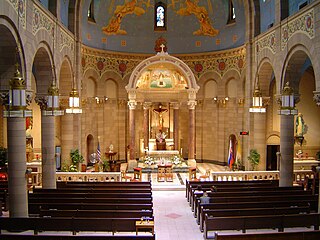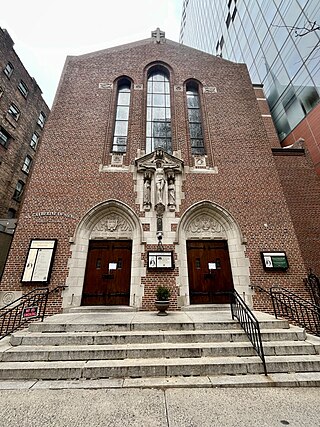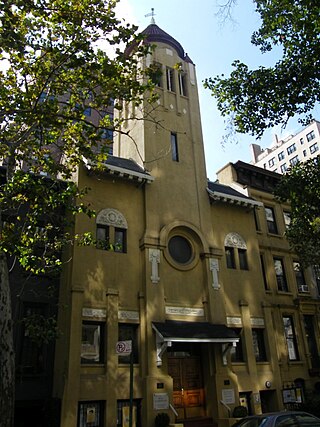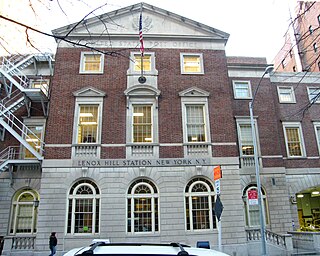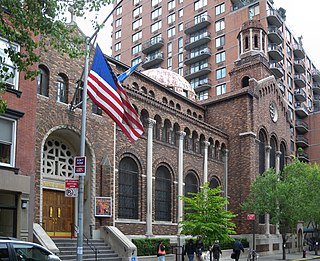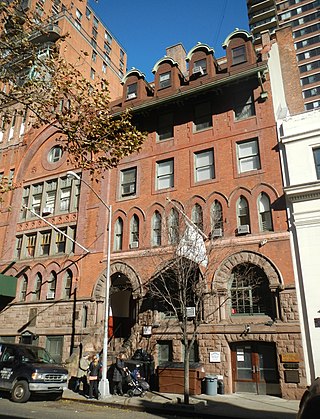Self-guided Sightseeing Tour #8 in New York, United States
Legend
Tour Facts
1.4 km
37 m
Experience New York in United States in a whole new way with our free self-guided sightseeing tour. This site not only offers you practical information and insider tips, but also a rich variety of activities and sights you shouldn't miss. Whether you love art and culture, want to explore historical sites or simply want to experience the vibrant atmosphere of a lively city - you'll find everything you need for your personal adventure here.
Individual Sights in New YorkSight 1: St. John Nepomucene Church
The Church of St. John Nepomucene is a Roman Catholic parish located on East 66th Street and 1st Avenue in Manhattan, New York City. The founders of the church were recent immigrants from Slovakia, who began meeting in St. Brigid's Parish at 8th Street and Avenue B in about 1891 and established the Society of St. Matthew to organize their own parish.
Sight 2: St. Catherine of Siena Church
The Church of St. Catherine of Siena is a Roman Catholic parish church in the Roman Catholic Archdiocese of New York, located at 411 East 68th Street, Manhattan, New York City. The parish was developed from that of St. Vincent Ferrer in 1896. It is staffed by the Dominican Fathers.
Wikipedia: St. Catherine of Siena Church (New York City) (EN)
Sight 3: First Hungarian Reformed Church
The First Hungarian Reformed Church of New York is located on East 69th Street in the Upper East Side of the New York City borough of Manhattan. It is a stucco-faced brick building, completed in 1916 in a Hungarian vernacular architectural style, housing a congregation established in 1895.
Wikipedia: First Hungarian Reformed Church of New York (EN), Website
Sight 4: Lenox Hill Station Post Office
The United States Post Office Lenox Hill Station is located at 217 East 70th Street between Second and Third Avenues in the Lenox Hill neighborhood of the Upper East Side, Manhattan, New York City. It is a brick building constructed in 1935 and designed by Eric Kebbon in the Colonial Revival style, and is considered one of the finest post offices in that style in New York State. It was listed on the National Register of Historic Places in 1989, along with many other post offices in the state.
Wikipedia: United States Post Office (Lenox Hill Station) (EN)
Sight 5: Cathedral of the Holy Trinity
The Archdiocesan Cathedral of the Holy Trinity, at 319–337 East 74th Street on the Upper East Side of Manhattan in New York City, is a Neo-Byzantine-style Greek Orthodox church. It serves as the national cathedral of the Greek Orthodox Archdiocese of America, and as the episcopal seat of Archbishop Elpidophoros of America.
Sight 6: Jan Hus Church
Avenue Church NYC, formerly known as Jan Hus Presbyterian Church, is a Christian congregation on the Upper East Side of Manhattan in New York City, associated with the Presbyterian Church USA. It is the oldest historically Czech Presbyterian congregation in the US, having been founded in 1877, and the church building was opened in 1888.
Share
How likely are you to recommend us?
Disclaimer Please be aware of your surroundings and do not enter private property. We are not liable for any damages that occur during the tours.
GPX-Download For navigation apps and GPS devices you can download the tour as a GPX file.
